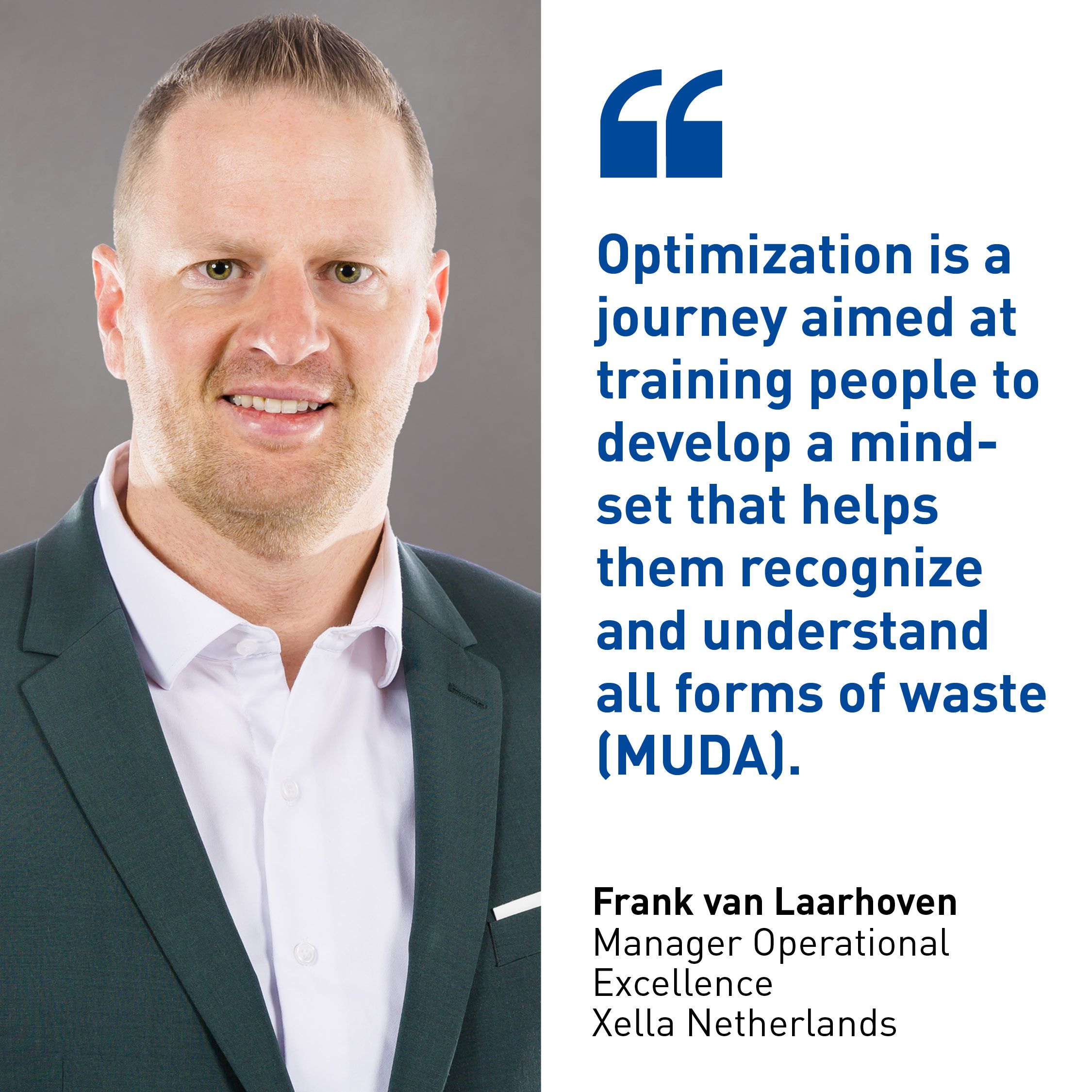Frank, you joined Xella in March 2025. What path did you take before?
I studied commercial mechanical engineering in Germany. My experience extends across various industries and project optimizations, from setting up and implementing certification processes to solving complex bottlenecks. In my previous job, I frequently visited Xella and got to know the organization. I got a good impression of the organization, and I quickly noticed that my vision of organizational development aligned with Xella's goals.
You reached the Master Black Belt level in Lean Six Sigma! What does that mean?
It's a methodology that combines two powerful process improvement strategies “Lean” and “Six Sigma” to improve business performance by systematically eliminating waste and reducing variation.
My first introduction to this field was during my work in the automotive sector. Its broad applicability for improving efficiency immediately caught my attention and sparked a deep interest. Over the past 13 years, I have worked extensively with these methods, leading numerous improvement projects with teams, advising various companies, delivering training sessions, and coaching individuals toward their practical certifications.
These experiences provided the foundation for my journey toward becoming a Master Black Belt. After successfully completing the required trainings and projects within the program, I have grown both professionally and personally. This journey has led me to where I am today, holding an international LCS certification from Cardiff University.
I continue to learn every day and strive to further develop myself by staying current and studying relevant literature. I hope to leverage my knowledge and experience to support Xella and its employees in their transformation toward a higher level of operational maturity.
Where do you see opportunities for Xella?
Xella is an excellent company with a strong international presence, which aligns closely with my personal and professional aspirations. I see a real opportunity to foster a culture of continuous improvement, where employees are empowered to grow and contribute. This kind of development is closely tied to awareness, ownership, and the ability to apply effective methodologies and tools.
As a manufacturing company, one of the most effective starting points is to examine the production process for opportunities, whether they involve minor inefficiencies or recurring issues. By combining various methodologies, such as Gemba (observation on the working floor), data analysis, and open dialogue with employees, we gain deeper insight into bottlenecks and areas where support is most needed.
From there, we can identify areas that offer the greatest potential for quick, meaningful improvements. This approach refers to those as 'low-hanging fruits.' This approach not only drives results but also strengthens engagement and continuous learning within the organization.

